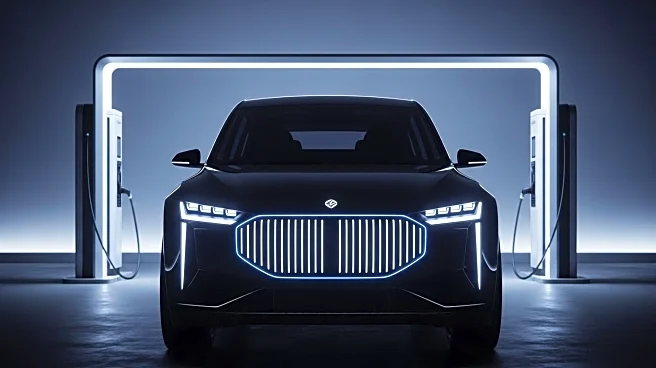What is the story about?
What's Happening?
Volkswagen has introduced the ID. Cross concept as part of its strategy to offer more affordable electric vehicles (EVs). This new concept follows the ID.2all, now renamed ID. Polo and ID. Polo GTI, and ID.EVERY1 concepts. The ID. Cross is designed to be an electric counterpart to the VW T-Cross and will be built on the MEB Plus platform, promising improved batteries, engines, and software. The vehicle features a front-wheel drive motor with 155kW of power, a range of 420km, and a top speed of 175 km/h. The ID. Cross is expected to be revealed next year, with production versions following the launch of other models.
Why It's Important?
Volkswagen's focus on affordable EVs is crucial for increasing EV adoption, especially as the market demands more entry-level options. The ID. Cross concept represents VW's attempt to compete with other automakers, particularly in Europe, where its EV sales have been stronger. By offering a more 'likeable' and affordable lineup, VW aims to improve its position against competitors like BMW and Hyundai. The introduction of the ID. Cross could potentially influence the EV market dynamics, encouraging other manufacturers to prioritize affordability and accessibility.
What's Next?
Volkswagen plans to reveal the production version of the ID. Cross next summer, following the launch of the ID. Polo and ID. Polo GTI. The ID.EVERY1 is expected to be released in 2027. VW's strategy includes leveraging the small size of the ID. Cross for better storage capacity and interior design, which may appeal to consumers looking for practical and affordable EV options. The company's focus on the European market suggests a continued emphasis on strengthening its EV portfolio in the region.
Beyond the Headlines
Volkswagen's approach to EV design, emphasizing 'friendlier' aesthetics and practical features like real buttons for controls, reflects a shift towards consumer-centric design. This could set a precedent for other automakers to reconsider their design philosophies, potentially leading to broader changes in the industry. Additionally, VW's decision to focus on the European market highlights the challenges faced in the U.S. market, where EV adoption has been slower.















